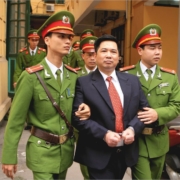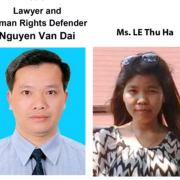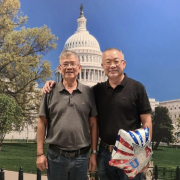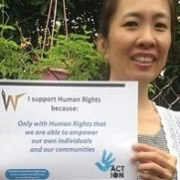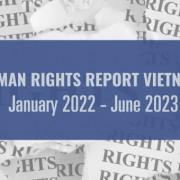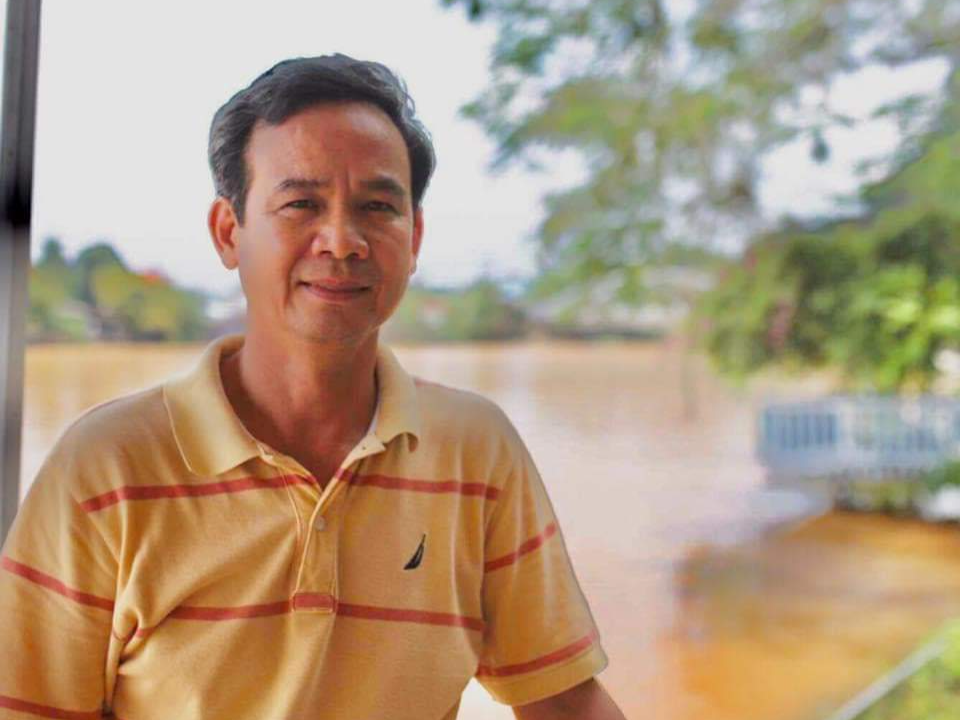Freedom of press: Update on Journalist Truong Duy Nhat, a political prisoner in Vietnam
Truong Duy Nhat, a journalist, prominent blogger and dissident, was able to update his family last week for the first time in several months, according to his daughter. Freedom of press is a fundamental human right, nevertheless Nhat is a journalist and currently a political prisoner. The last time Nhat’s wife was able to visit her husband was April 2021, five months after the journalist was transferred to Prison No. 3 in Nghe An Province. The reason the family was given, for not being allowed to see him since, was because of the pandemic.
This explanation strains credulity since the latest and most lethal wave of infections caused by the Delta variant didn’t begin until July of this year and was affecting mainly the southern region of the country. Between the end of last year and this past summer, Vietnam was hailed by other nations as a success story in containing the virus. In early May, the government told people to go out and celebrate Reunification Day. As a result, many beaches, especially Vung Tau, were packed with holiday makers, causing great concern in the medical community. The authorities also encouraged citizens to go to the polls in late May to vote in an election that was all but meaningless since the results were already predetermined.
According to Nhat’s daughter, her father is still held at Prison No. 3 in a room with 49 other prisoners. They sleep on the floor close to each other. Each person has about two square meters of “living space.” It is not known if the political prisoners, among other prisoners, have been vaccinated, but given the current shortage of vaccines compared to the high demand throughout the country, it is highly unlikely that journalist Nhat is vaccinated.
What we do know is all political prisoners are required to perform manual labor. Nhat himself has to work from 7am to 5pm five days a week, according to his daughter, with a two-hour lunch break. At first the journalist was tasked with doing craft work, constructing paper structures etc. But due to a herniated disc, a condition he had had since his first incarceration in 2014, Nhat could not sit in one place for very long. He also suffers from allergies, which were made worse by the dusty conditions in which he worked.
In January 2021 Nhat successfully petitioned the prison to transfer him to another type of work. In a phone call home in February, 2021, Nhat said he was now assigned to weaving baskets, which helped relieve his allergies. However, the new job did not help his back pain since he was still required to sit for long periods of time.
Before his first arrest in 2013, Truong Duy Nhat worked as a journalist for a state-run media. Freedom of press is a fundamental part of being a journalist, but not in these media. He then left the job and started advocating freedom of press in his own blog called “A Different Point of View,” for which he was arrested and sentenced to two years in prison. The journalist was charged with “abusing democratic freedoms” under Article 258 of the 1999 Criminal Code and became a political prisoner.
After his release in 2015, Nhat continued to advocate freedom of press in his blog and also was a Vietnamese language contributor to Radio Free Asia. In January, 2019, while Nhat was in Thailand seeking political asylum, he was abducted by undercover Vietnamese security police and brought back to Vietnam.
His family was not notified until two months later. Nhat was indicted for “abuse of position and power when carrying out public duty” under Article 356 of the 2015 Criminal Code for a land use dispute that had taken place fifteen years earlier.
Although the circumstances around his case remain highly dubious, including the lack of charges against supposed co-conspirator Dai Doan Ket newspaper, Nhat was nonetheless convicted and sentenced to 10 years in prison. The following excerpt from one of our analysis pieces sums up Truong Duy Nhat’s case: “By framing Truong Duy Nhat as the sole perpetrator of the 15-year-old crime, the central authorities conveniently turn Nhat into the mastermind of the entire incident, as though Nhat, as a regional representative of a newspaper, could somehow dictate and direct both local and central authorities.
More importantly, if this had been simply an abuse of power case, the regime would not have had to kidnap Nhat in Thailand and held him in secret for weeks before confirming his charge and detention as a political prisoner.
Pondering the intricacies of Vietnamese land use law and public assets management at the time, plus the reality that Truong Duy Nhat is still a prominent dissenter, freedom of press advocater and probably has obtained certain sensitive information, it can be argued that the charge against the journalist is politically motivated, aiming to suppress political dissent.”
Since the time this report was published, the pandemic has added several more layers of complexities to the plight of political prisoners who used to be peaceful activists and dissenters.
As the number of cases and deaths in the country continues to rise, poor sanitary conditions plus lack of social distancing and the lack of vaccinations mean that the lives of political prisoners like Truong Duy Nhat are in more danger than ever before.
© 2021 The 88 Project


